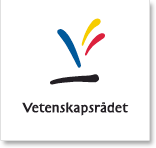 Last week, a Swedish government funding agency announced 325 recipients of grants in Natural and Engineering Sciences. We don’t normally write about grant announcements, but we’re flagging this one because one recipient may be familiar to our readers.
Last week, a Swedish government funding agency announced 325 recipients of grants in Natural and Engineering Sciences. We don’t normally write about grant announcements, but we’re flagging this one because one recipient may be familiar to our readers.
It is Peter Eklöv of Uppsala University, a co-author of a now-retracted Science paper about the potential dangers of microplastics to fish.
Eklov will receive 800,000 ($94,784 USD) each year in 2018-2020 and 900,000 ($106,632 USD) in 2021, totalling 3,300,000 ($355,440 USD). The granting agency is the Swedish Research Council, controlled by Sweden’s Ministry of Education and Research.
Eklöv‘s retracted paper — which he co-authored with Oona Lönnstedt — got significant media coverage when it first appeared in June 2016, as it suggested fish larvae prefer to eat microplastic over their own natural prey. But soon after it was published, a group of researchers raised several allegations, including that the paper contained missing data and used a problematic methodology.
Uppsala conducted a preliminary investigation and concluded there wasn’t enough evidence to launch a misconduct investigation, but Sweden’s Central Ethical Review Board — which appointed an outside expert to review the case — found Eklöv and Lönnstedt guilty of “scientific dishonesty,” and said the paper should be “recalled.” (The board also chastised Uppsala and Science, noting it was “remarkable” the university didn’t find evidence of dishonesty, and that the journal ever agreed to publish the paper.)
Earlier this year, the authors asked that the paper be retracted.
Even when a researcher is found guilty of outright misconduct, it’s rare that he or she is permanently banned from receiving government funding. When the U.S. Office of Research Integrity makes a finding of misconduct, for instance, most funding bans last only a few years.
Update 11/9/17 16:48 UTC: We’ve heard from a representative of the Swedish Research Council, who told us:
First of all, in the Swedish higher education/research system it is the host university of a researcher that has the responsibility to scrutinize and determine if a scientist has commited to unethical research. In the case you mention, it is Uppsala University that has this responsibility and we have learned that they are making an ivestigation into the matter related to the retracted paper. The Swedish Research Council does not make such investigations on its own but relies on the decision bythe host university. The decision by Uppsala University is pending.
When a researcher has not been found guilty of unethical behavior, he/she is free to submit proposals to the Swedish Research Council and have it properly judged by the review panels. This is of course a difficult task for a review panel. The panel evaluating the proposal of Eklöv was fully informed about the situation and took that into account in their review. The proposal of Eklöv was found good enough to be suggested for funding, and thus the Scientific Council of Natural and Engineering Sciences took that decision. However, if Eklöv will be found guilty of unethical research behavior by Uppsala University, this decision will be subject to re-evaluation and he could face a termination of the grant and potentially also a quarantin period. However, nobody should be judged guilty before properly tried. Please note that the review of proposals and the handling of unethical research behavior are two separate processes, both of which should run their course. In the latter process, the Swedish Research Council awaits the decision by Uppsala University and will if needed take the necessary actions.
Like Retraction Watch? Consider making a tax-deductible contribution to support our growth. You can also follow us on Twitter, like us on Facebook, add us to your RSS reader, sign up on our homepage for an email every time there’s a new post, or subscribe to our daily digest. Click here to review our Comments Policy. For a sneak peek at what we’re working on, click here. If you have comments or feedback, you can reach us at [email protected].
Me thinks there is a comma in the wrong place. 3*800,000 + 900,000 makes 3,3 million, not 33 million!
Fixed, thanks!